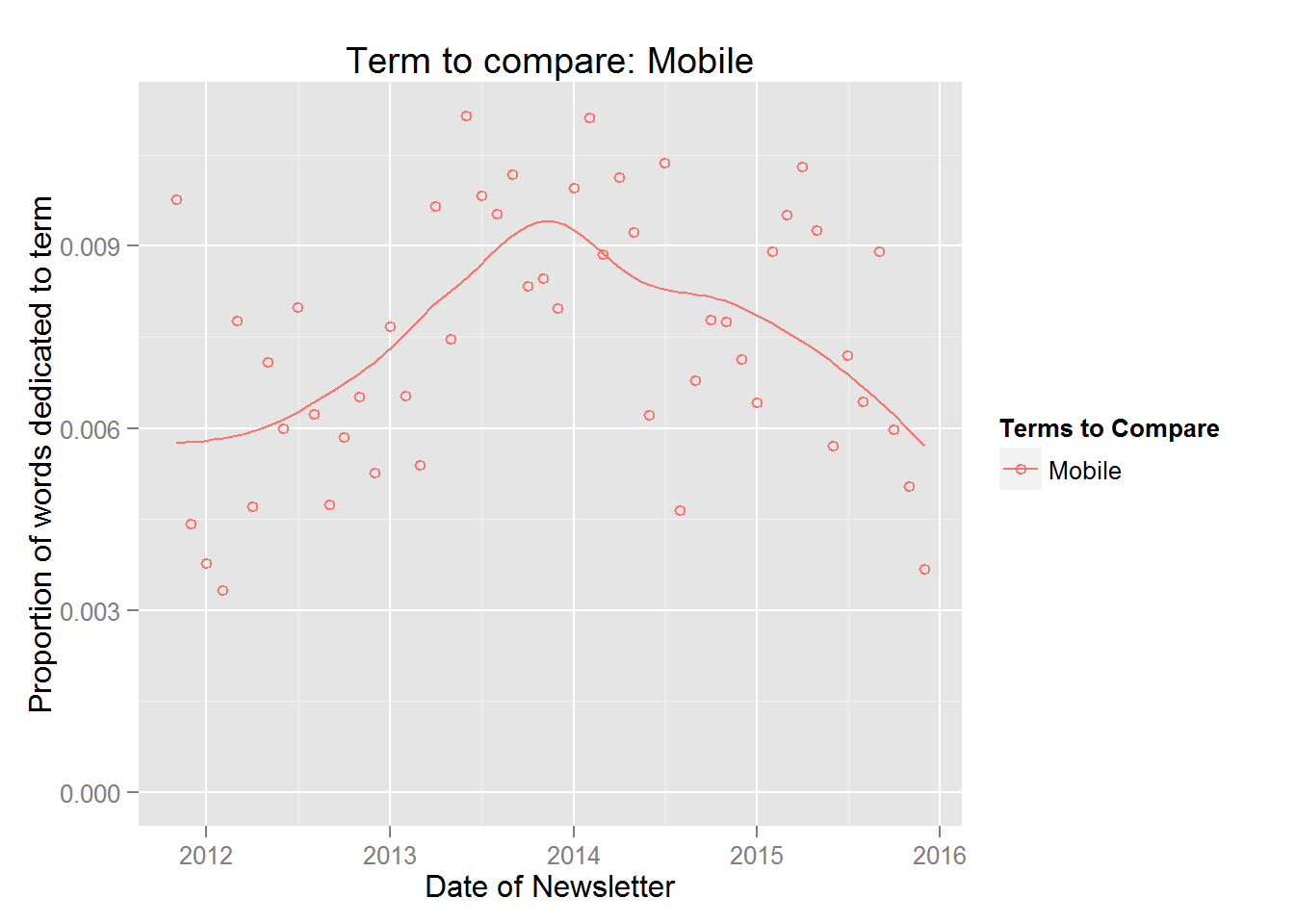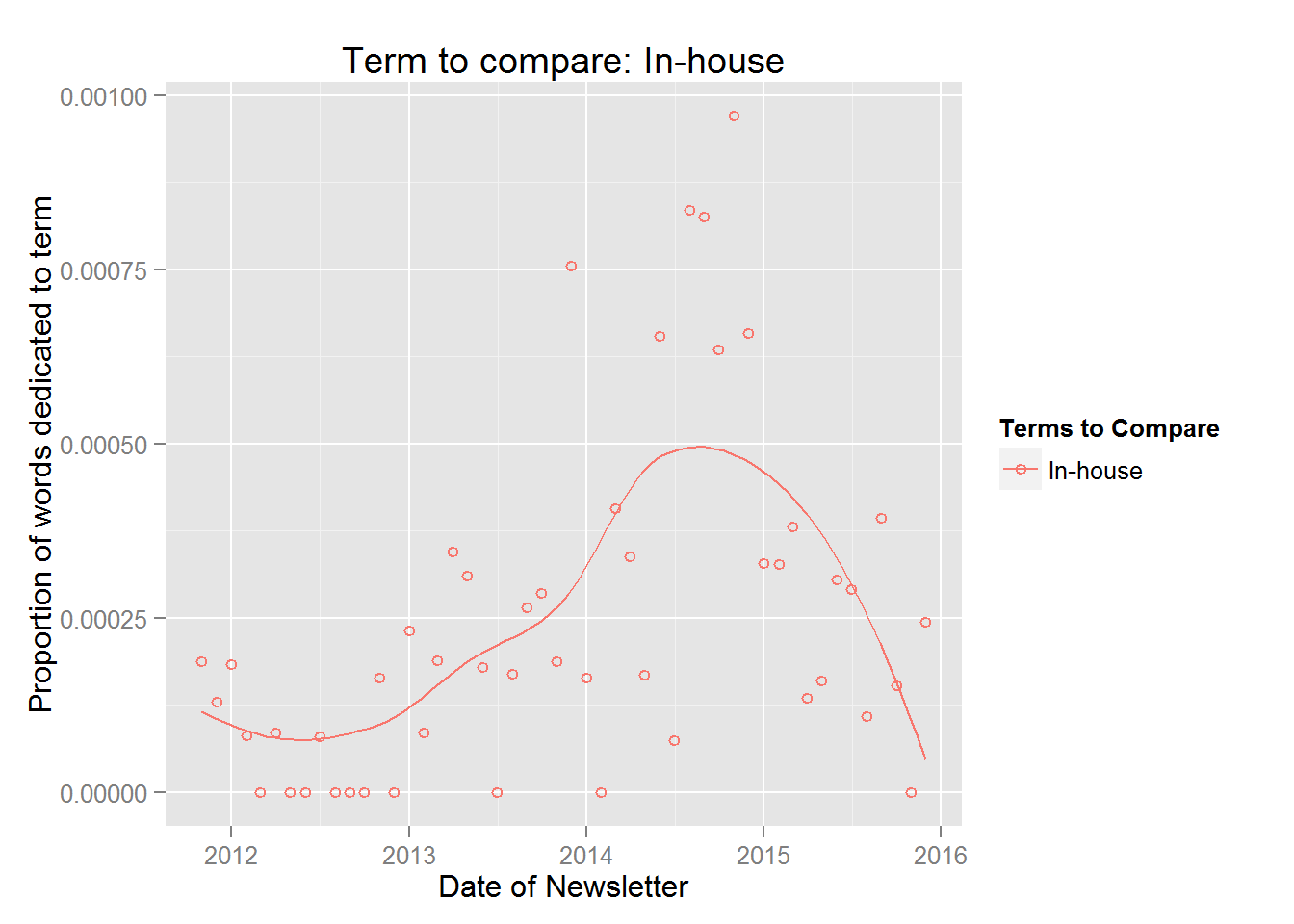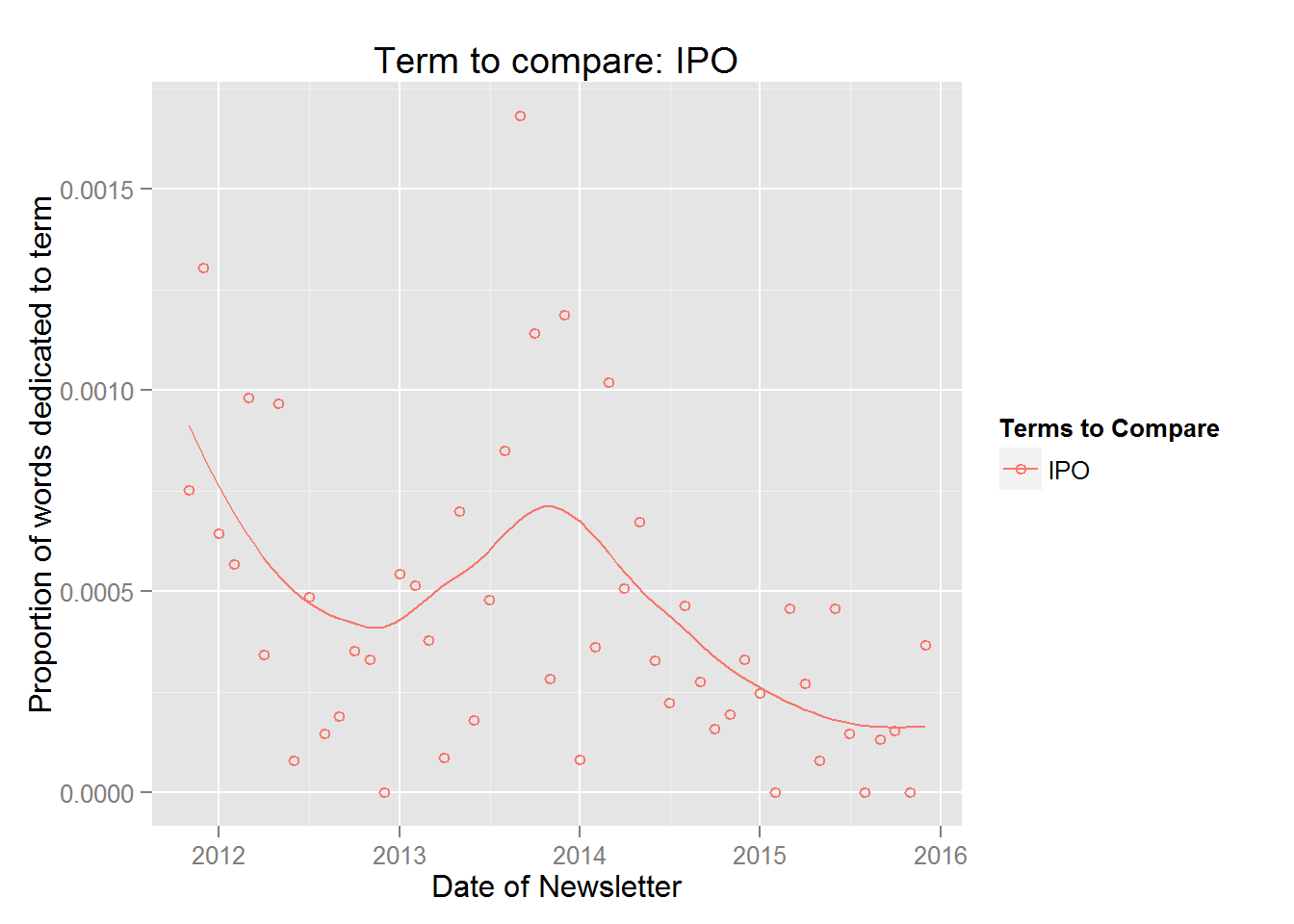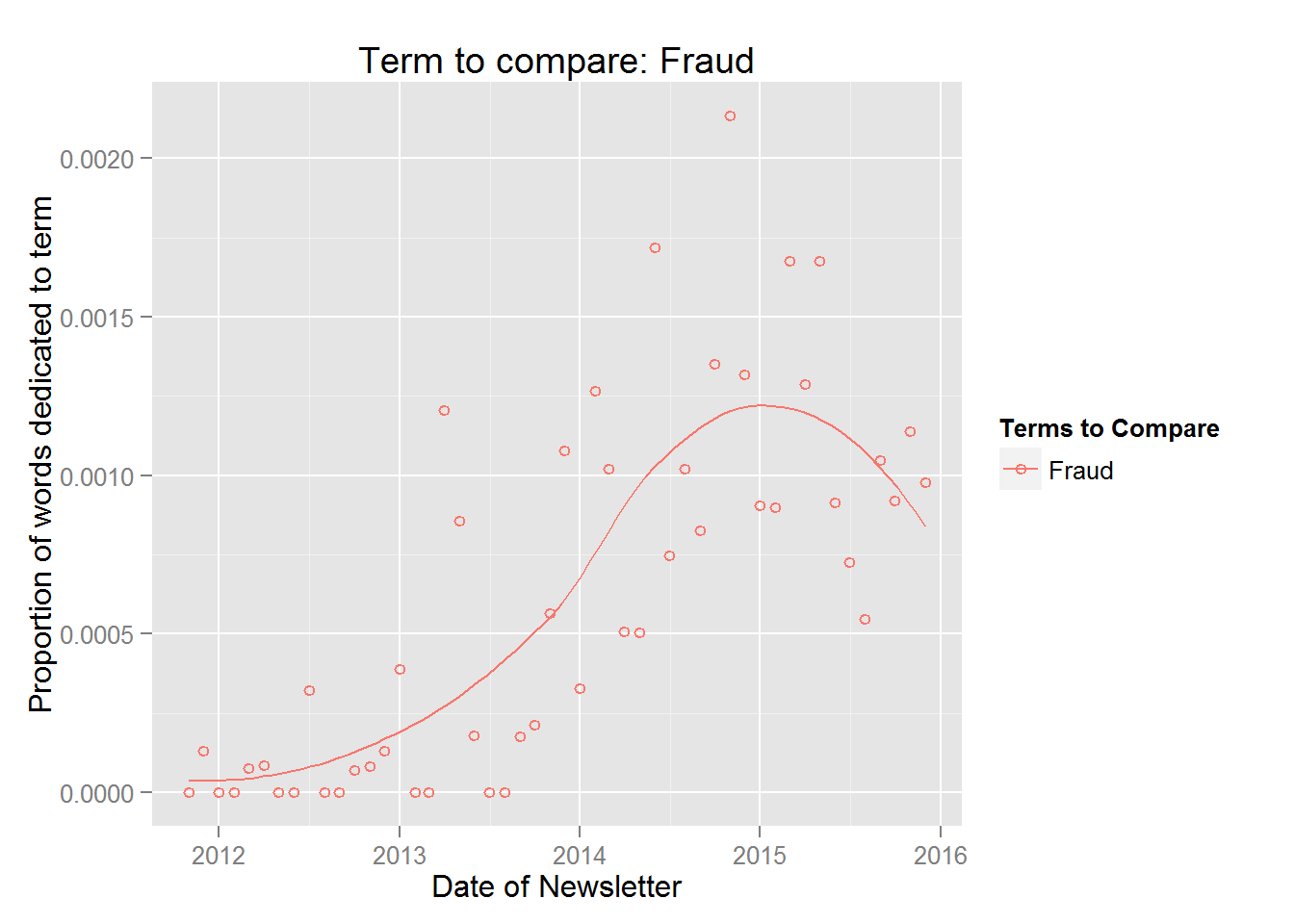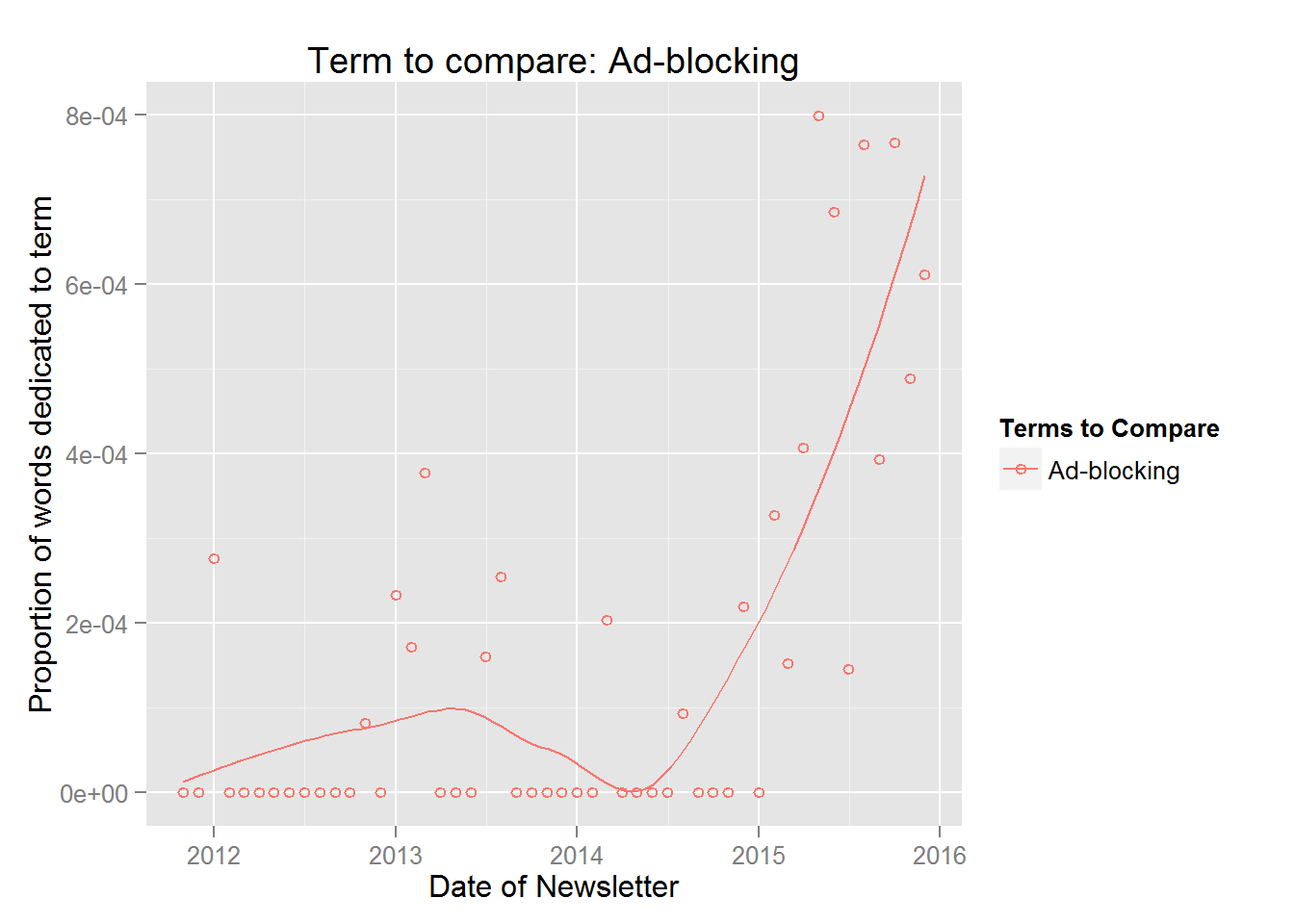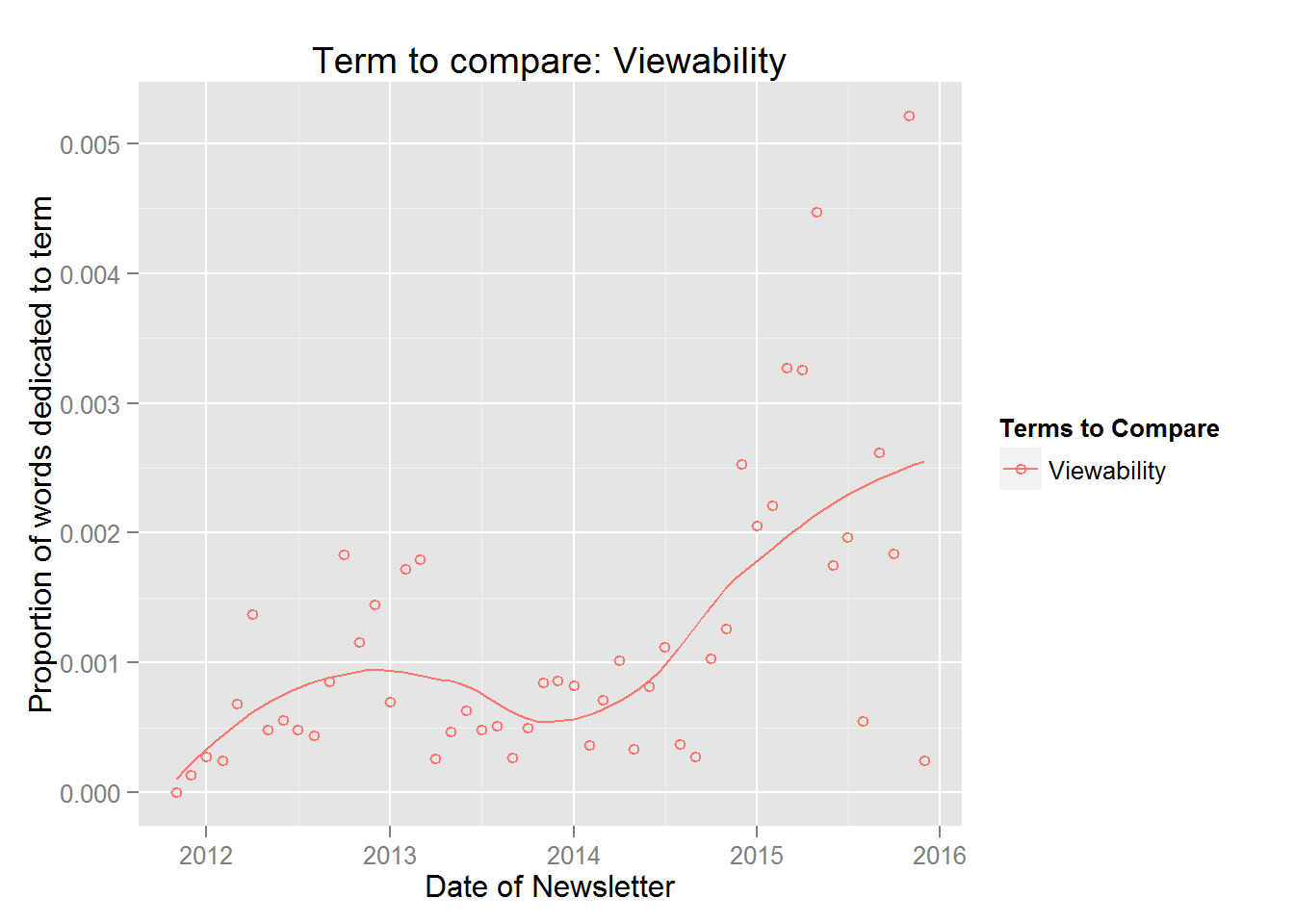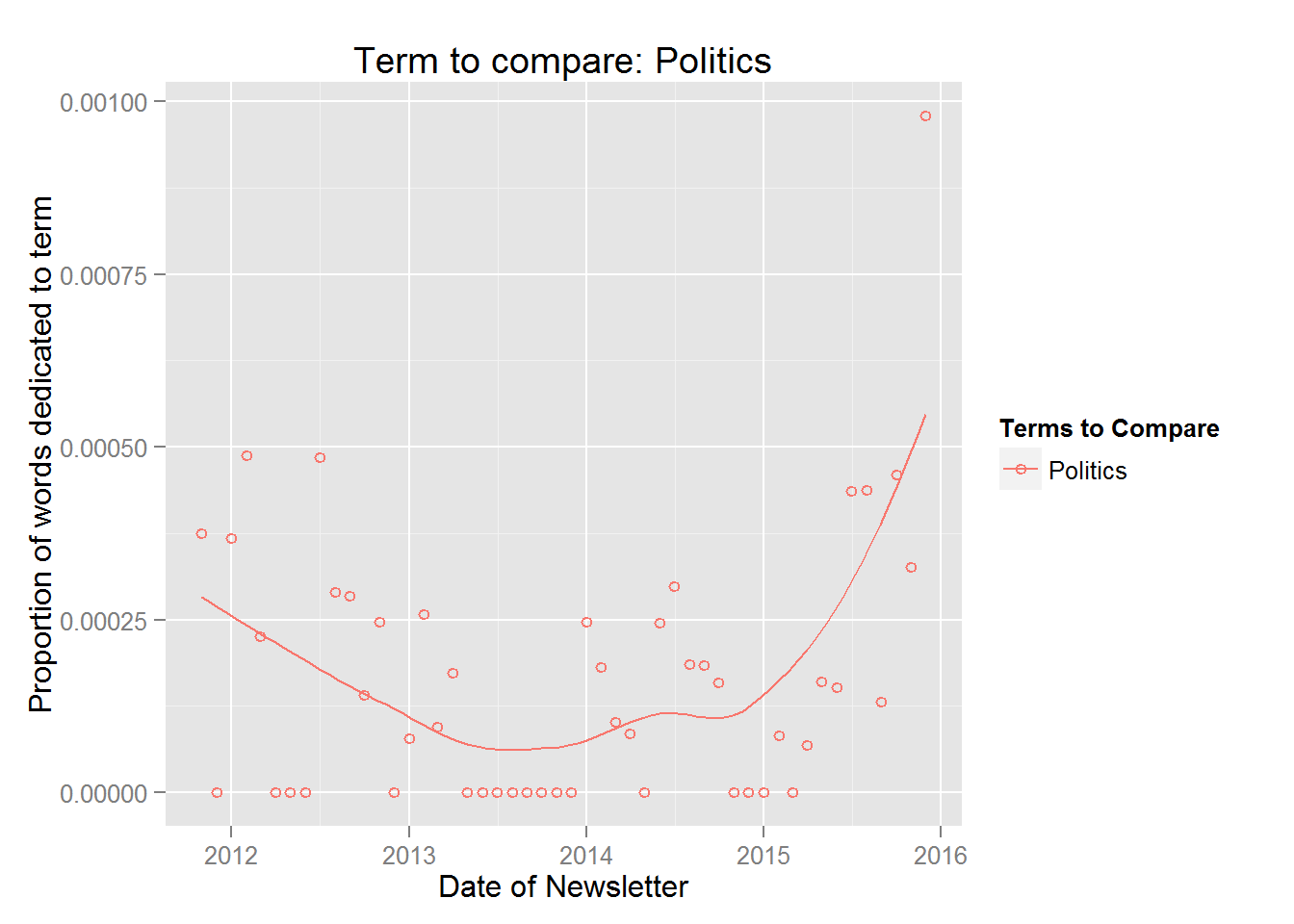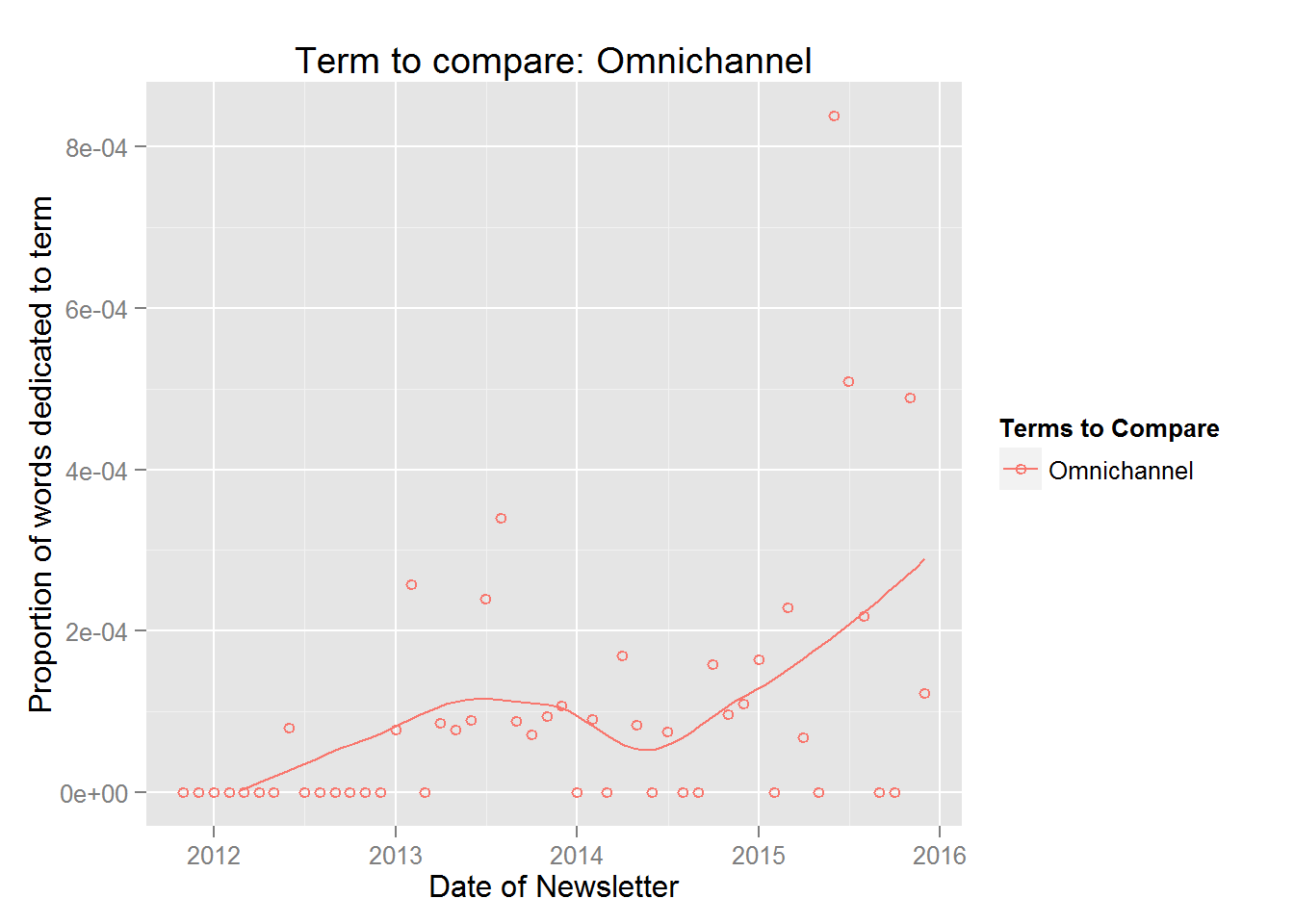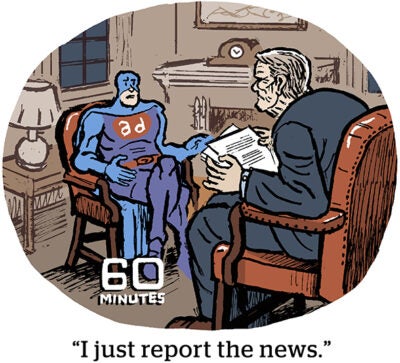 “Data-Driven Thinking” is written by members of the media community and contains fresh ideas on the digital revolution in media.
“Data-Driven Thinking” is written by members of the media community and contains fresh ideas on the digital revolution in media.
Today’s column is written by Mark Davenport, senior director of analytics at The Trade Desk.
Ad tech can be an echo chamber. Only a small number of media outlets cover our industry, largely because it’s so niche, and the result is a relatively small number of people owning a large amount of the discourse. Ideas ebb and flow, topics come into style very quickly and dominate the industry conversation, while other topics fall out of favor just as fast.
I started subscribing to AdExchanger’s daily newsletters in late 2011. They have since been my main source for following the industry. Over the years, I’ve noticed anecdotal trends in word usage and topics. The idea of trying to quantify the word usage and topics that have been popular in ad tech through the years really interested me. I decided to scrape the text from every AdExchanger newsletter I’ve received since the end of November 2011 and see what trends I could find in word usage.
The daily newsletter is broken into sections. I personally only closely read the “Today from AdExchanger” and the “News Round Up” sections. For this post, I tried to follow the same logic, so I scraped the text of each email starting from “Today from AdExchanger” and stopped at the “But Wait, There’s More!” section. Once I scraped the text, I processed the words.
Consider this sample sentence: “Many advertisers were advertising with advertisements in many media markets last year, across the US and Europe.”
To get at the interesting stuff here, I’d process the sentence as follows:
- Remove any URLs
- Make everything lowercase
- Remove all punctuation
- Remove commonly used words, such as “the” or “and”
- Stem the words, so the words “advertisers” and “advertising” get reduced to “advertis”
All of this processing would convert our sentence to this data set:
| across | advertis | Europ | last | mani | market | media | usa | year | |
| my made-up sentence | 1 | 3 | 1 | 1 | 2 | 1 | 1 | 1 | 1 |
I applied this processing to each email, grouped all the text into month and year and analyzed word usage through time. My analysis focused solely on proportion of word usage, with an assumption that the larger the proportion of times the word is used in a month compared to all words, the more important it was to the overall industry conversation.
The graphs below represent some of the most interesting topical trends I was able to find.
Our Description Of The Industry
The first interesting trend was the way we as an industry referred to ourselves. Back in 2011, we still used terms “RTB” and “remnant” when talking about the industry. From 2012-2013 onward, those terms very quickly became dirty words, replaced with the more elegant-sounding “programmatic” as the nom de rigueur for describing ad tech.
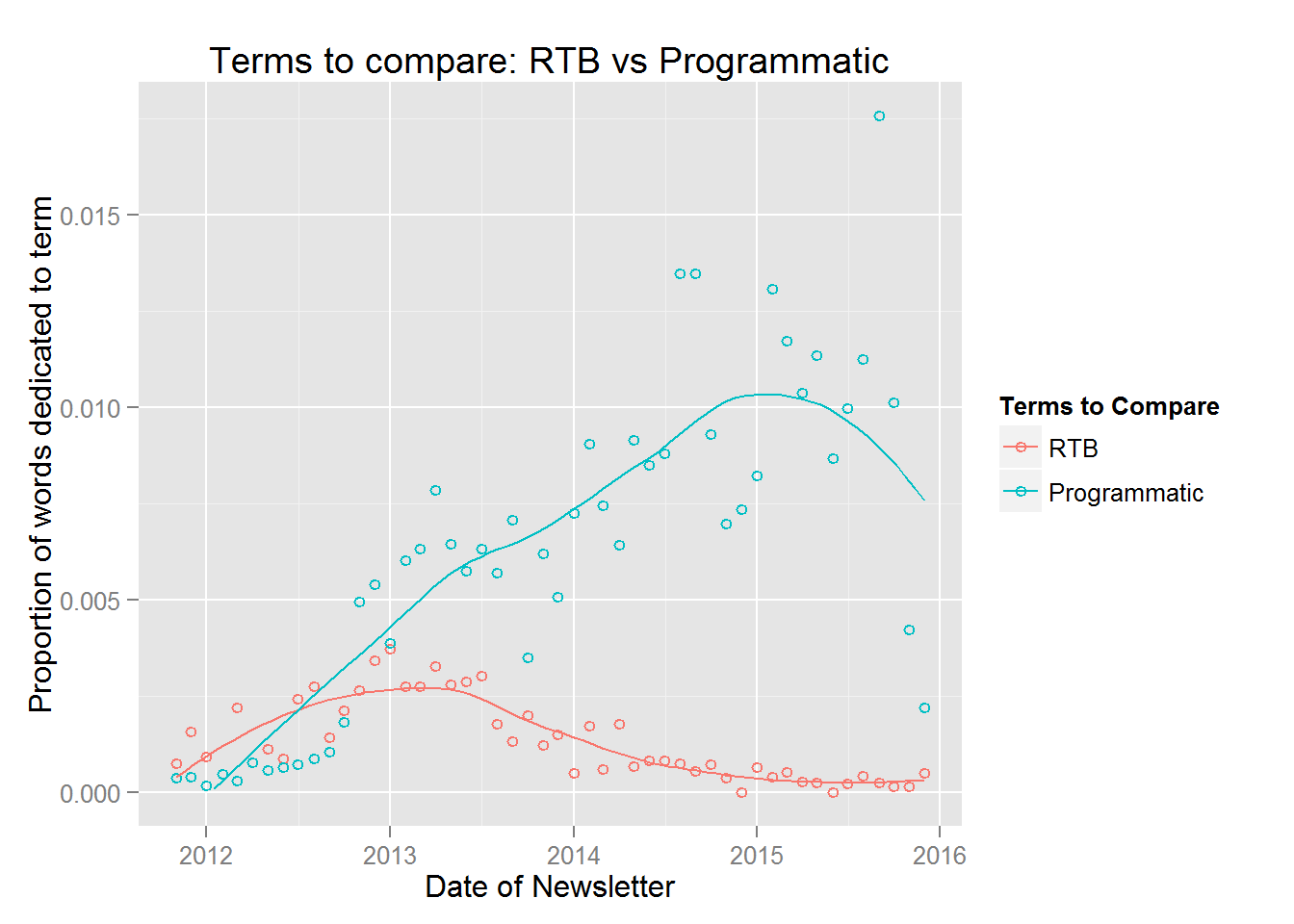 When Was The Year Of Mobile?
When Was The Year Of Mobile?
Is 2016 finally the year of mobile? Or was it actually in 2015?
According to AdExchanger’s use of the word mobile, I’m declaring 2013 the year of mobile. What big news event happened that year that could have driven that? A large one: Twitter bought MoPub in September 2013. My guess is if we dug into this deeper, the excitement from that news story led many people to speculate on the expansion of mobile into ad tech.
Going ‘In-house’
The end of 2014 brought a ton of chatter around the idea of advertisers taking things “in-house,” or migrating their programmatic buying efforts away from their agency and managing it all internally. There was about a six-month period where many industry vets were weighing in on the efficacy of this as a strategy. In 2015, it seems that most people had moved on from that conversation.
IPO Talk
Everyone’s gone bearish on the ad tech market as of late. Discussions of IPOs peaked at the end of 2014, largely driven by RocketFuel’s IPO. Since that time, “IPO” has become something no one really wants to talk about. Will AppNexus bring talk of IPOs back into the conversation? Time will tell in 2016.
Fraud
Fraud has become a major topic for the industry, as it well should be. It’s an important problem that we must continue to combat. Spider.io made headlines with its fraud analyses in the end of 2013, but no major news events happened at the end of 2014 that I could find to have driven the spike. Whatever drove the spike, there were some major headlines a few months later, including the announcement of a Trustworthy Accountability Group program to block fraudulent data center traffic, along with the news that AppNexus’ transactions declined 65% once it filtered out fraudulent inventory.
It’s unlikely that fraud will ever leave the conversation, but it seems the worst may be behind us.
The Most Popular Terms Of 2015
Since people weren’t chatting about advertisers taking things in-house, what were they talking about in 2015? A big topic of interest became ad blocking, as shown by the huge spike in the graph. The usage of that word was eight times higher than it had been in all the years past.
Note the concentration of points on the y-axis. As an overall topic, it wasn’t a huge part of the discourse, but it definitely was a much larger concern this year than it had been in any year past.
The other big term this year was “viewability.” This concept has been rising in popularity, but the use of the word was three times higher in 2015 than it had been in years past. What’s interesting is the relationship between these two trends. What both point to is the industry’s need to clean up ad executions that aren’t fraudulent. We’ve made major strides in combatting fraud as an industry, which was the first step. Now we have to focus on creating content with fewer but better ads per page.
Big Trends For 2016
So where does this leave us for 2016? There are a few easy ones to call out. With 2016 being an election year, we are already seeing rumblings of how politics and the election will shape the conversation this year. I’d expect to see the topic of politics increase this year as we head into the election.
The other big trend I’m anticipating being a larger part of the conversation this year is “omnichannel.” With the establishment of cross-device and the development of programmatic TV, all the pieces are finally coming together for marketers to have real, data-driven omnichannel marketing strategies. I think this will only continue to grow as a part of the conversation.
Biggest Takeaways
After all this, there were a few things I think we should take away. First, RTB is no longer a suitable description of our industry. It’s evolved so much more beyond that terminology.
Ad blocking and viewability were the standout topics of 2015. Omnichannel and politics are poised to be big standouts in 2016.
Feel free to explore more of this data here.
Follow Mark Davenport (@markedavenport), The Trade Desk (@TheTradeDeskInc) and AdExchanger (@adexchanger) on Twitter.



